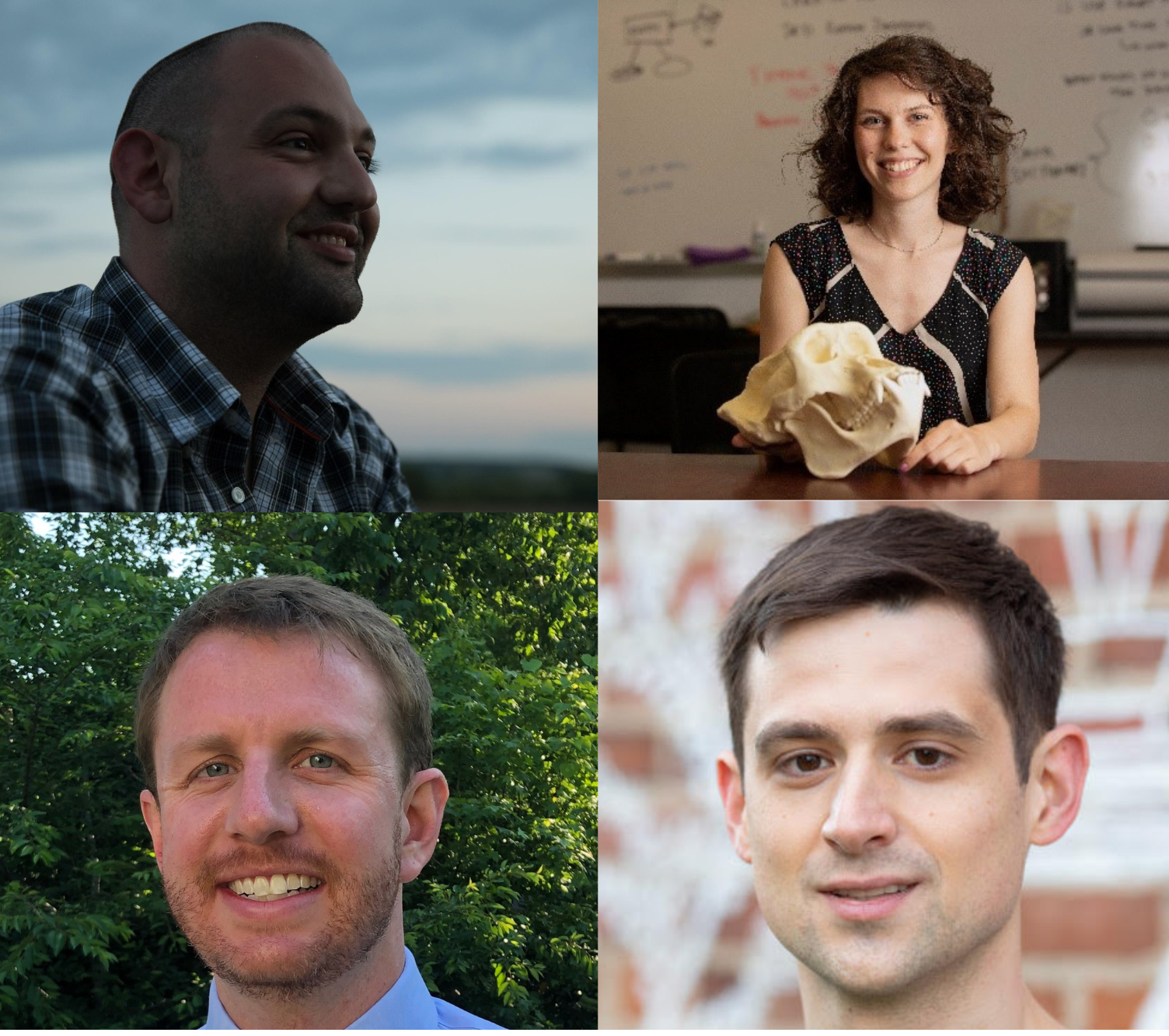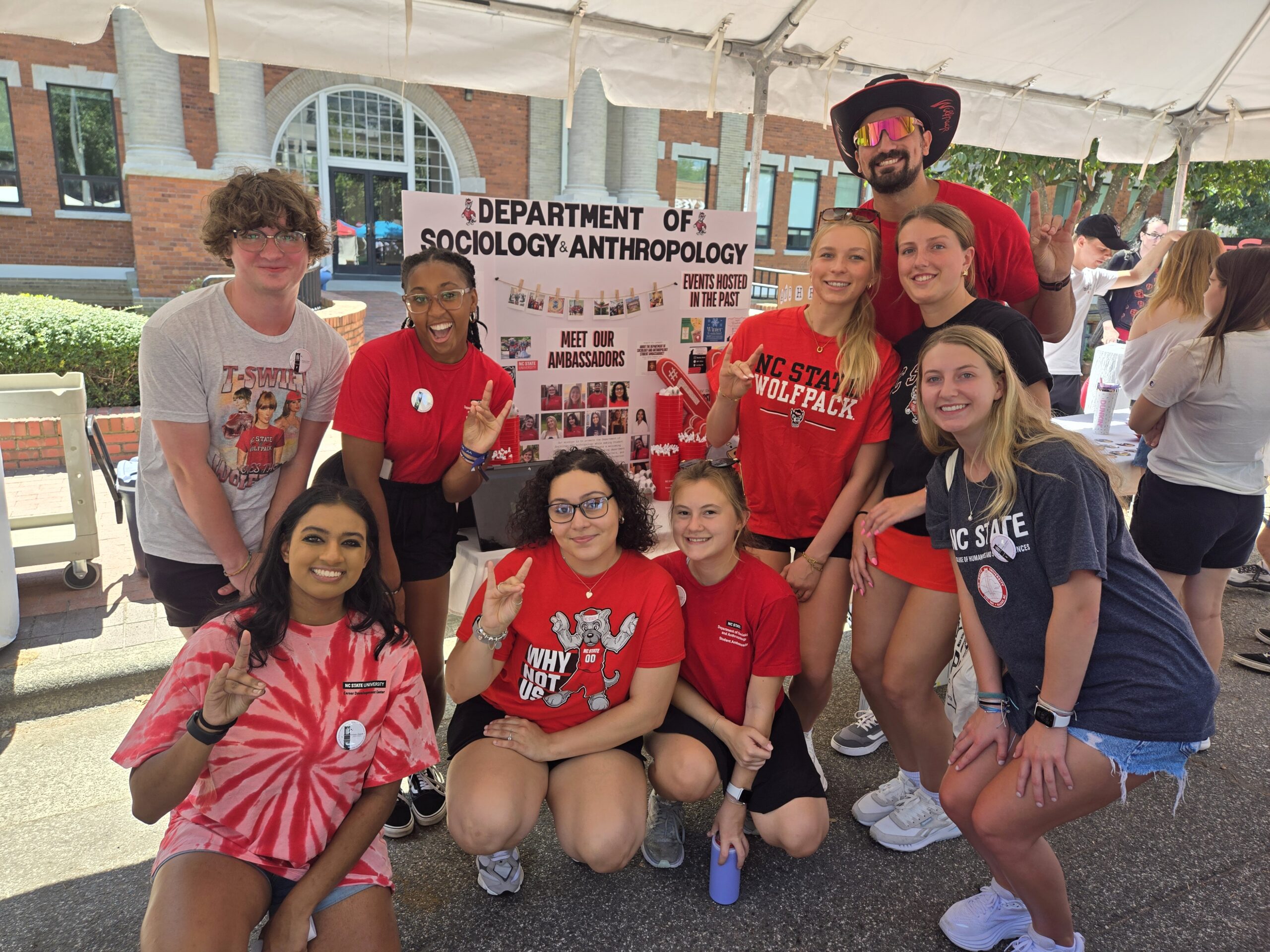NC State and UGPN: A Global Partnership for Social Impact
Karl Jicha, a lecturer in the Department of Sociology and Anthropology, recently partnered with the University Global Partnership Network.

North Carolina State University has been fortunate to serve as a participating school in the University Global Partnership Network (UGPN), a program with the vision of “global partnership for social impact.” And I have had the joy of learning about this program and how it has taken place during Covid-19 through a series of interviews with faculty and students in our department.
UGPN is a collaborative network allowing students from NC State University, Universidade de São Paulo in Brazil, University of Surrey in England, and University of Wollongong in Australia to tackle large-scale issues through research and combining their individual perspectives. This Spring, Dr. Karl Jicha was approached by Dr. Troy Case, the Head of the Sociology and Anthropology Department and Dr. David Dixon, the Director of Partnerships with the Office of Global Engagement, to take on this unique opportunity. Dr. Jicha, a two-time alumni of the Wolfpack and current lecturer, along with Leena Torky, a first year doctoral student in Sociology concentrating in inequality and Brittany Gaustad, a second year doctoral student in the same program with a focus on environmental sociology and social movements, led a trial run of a Collaborative Online International Learning (COIL) project involving undergraduate students from Sociology 211 Community and Health. This course looks at topics from a global population health perspective, making it uniquely matched for UGPN during Covid-19.

Brittany describes the goals of the UGPN program as “connect[ing] students internationally across several countries… This program during the pandemic era is a virtual alternative to study abroad programs that are unable to take place due to COVID restrictions. Students benefit through participation in the UGPN program not only through networking but also by learning from the experiences of other students in different countries in terms of how they are coping with the pandemic as well as differences in approaches to COVID across different countries.” Brittany has been tasked with setting up the Slack platform that the participants have used to chat with one another and stay up-to-date on program information. Leena follows up by emphasizing the benefits of “forming international friendships online and collaborating on projects together” in the maintenance of people’s positive mental health during the pandemic. She continues by noting that the students’ response to this type of collaborative learning has been marked by professionalism, impressive teamwork skills, maturity and problem solving.
The participating universities assigned students to groups in which they chose project topics related to student experiences during the pandemic. Students shared their projects as formal presentations, garnering constructive feedback and dialogue. Examples of topics include looking at how the media and government have relayed information about the pandemic to the general population, looking at national level strategic plans trying to cope with and reduce the impacts of the pandemic, vaccine roll-out plans, as well as positive mental health maintenance. There is hope that this experience will bring an understanding that students are dealing with similar circumstances during the pandemic, and that their universities are not all that different.
A current student participating in the program, Jessica Creech, a junior majoring in Science, Technology, and Society (STS), chose to partake in UGPN to have the chance to meet people from other countries and learn more about their lives and cultures while having the opportunity to share about her own. She has thoroughly enjoyed working with her international peers and has seen a commonality in their hobbies, interests, and experiences. She proceeds to note that “[their] virtual group posters will be comprised of different forms of media such as pictures, videos, and articles relating to the pandemic. These collaborative projects help visually present [their] experiences and [their] countries’ experiences during the Coronavirus pandemic.”
In response to my questioning the future of the program, Dr. Jicha says, “having the chance to expand where UGPN has offered relatively little in the way of student collaboration in the past, we could make it an every semester occurrence where we could take certain classes from each university and bring students together. And then for graduate students, especially during the pandemic, where it would be very valuable to be able to connect and build new networks with students and faculty from other countries, to get more of that international exposure and experience.” He hopes that students will see that sociology is international and will be inspired to take advantage of opportunities to explore both the shared and diverse experiences of other societies and populations around the world.
And when asked for any final comments, Dr. Jicha remarks that the “opportunities are limitless to move [the program] forward.” This has been a trial semester in which roughly 4 weeks of the student’s semesters have been dedicated to this program and its associated projects. However, there is a desire to overcome the logistical challenges and to coordinate synchronous classes with the other universities. Dr. Jicha succinctly states that UGPN gives students a “closer connection to the experiences other countries are having by listening to faculty and students that are there experiencing it firsthand.”
And furthermore, Dr. Case makes a wonderful point that perfectly summarizes not only the purpose of the program, but its greater advantage in the development of students here at NC State,
“I think that an in-class collaboration like this one, where you have students from institutions on different continents learning together and discussing important social issues, is a great way for our students to gain international exposure. For students who are unable to participate in a study abroad program, this kind of course allows them to gain some of the same benefits – to learn about different viewpoints on specific topics, and about how other countries and cultures deal with specific social problems. We live in an increasingly diverse nation, and the ability to appreciate and engage with that diversity is an important, and potentially valuable, skill to have.”
Personally I see NC State’s participation in the UGPN program to be lucrative to the student and faculty experience, and I urge the university to continue supporting its development on campus. As for my readers, I hope that you have taken an interest in this program and will keep an eye out for ways to get involved or support from a distance. This developing virtual study abroad program is unique and should be encouraged as an opportunity for the Wolfpack.

This post was written by Shelby Feirstein, a junior studying anthropology with minors in forensics, genetics and French and a Department of Sociology and Anthropology student ambassador.


